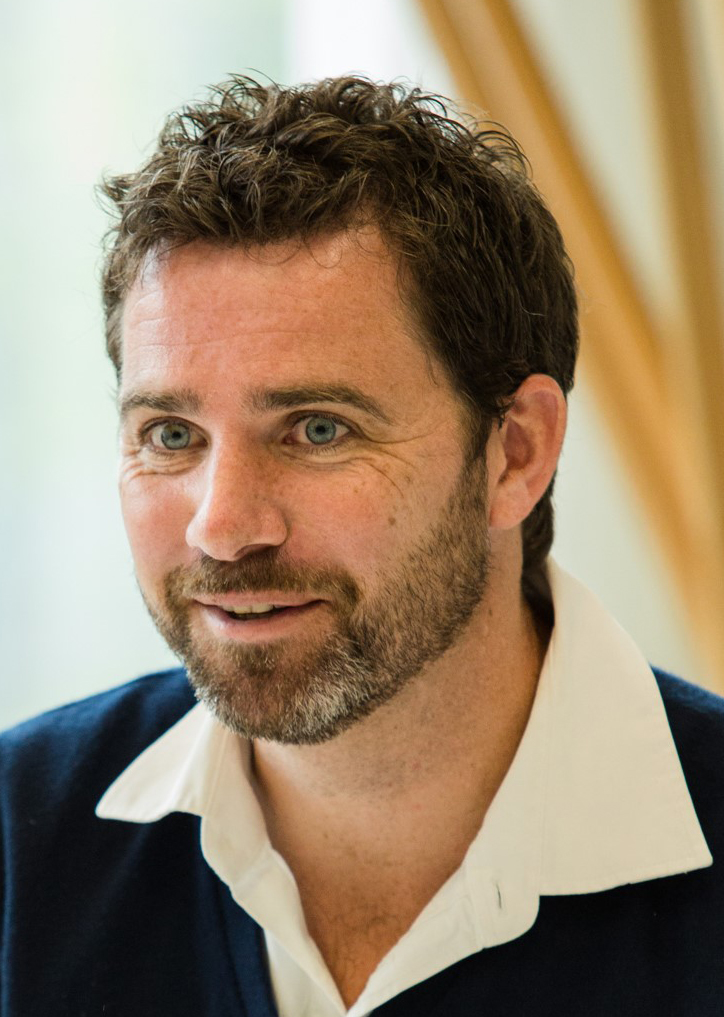Oliver Balch recalls what the magazine was like to write for in the early days, and how it, and its readers, have evolved
I have been writing on sustainable business for my entire career, 16 years of which as a contributor to Ethical Corporation magazine. Today, there are a spate of magazines, e-zines and podcasts on the subject, but back then Ethical Corp – as we’ve always called it in-house – was a genuine outlier and pioneer.
As writers, it was a place where we could point and probe at what we felt was interesting and inspiring about this burgeoning global movement. For our practitioner readers, it provided (I’d like to think) a voice-piece for their emerging industry and encouragement for them to keep pressing on. Its very existence reminded us all that corporate sustainability was on the up, taking shape, making waves.
How I describe what I write about over the years has, inevitably, altered. In the early days, “business ethics” was (is?) still a thing. So, too, “community affairs”. For a long while, “corporate responsibility” was the in-vogue term.
Then, “sustainability” (or SustainAbility, as John Elkington’s former consultancy had it) came along and claimed pre-eminence. Now, a host of new contenders are pushing for the top spot: “conscious capitalism”, “corporate purpose”, “shared value”, “stakeholder capitalism”, the list goes on.
Two decades of writing on this subject has taught me that shifting corporate capitalism onto a sustainable footing takes time
In part, the fault for these name games falls on us, the media. Ever on the hunt for new angles, we move on quickly. New terms crop up and immediately we’re looking to see what’s under the hood, not expecting a “silver bullet” (“there’s no such thing”, to quote the cliché) but hoping at least for a fresh insight or new perspective.
For me, as for Ethical Corporation (and its new sister publication, The Sustainable Business Review), what counts above all – and what we always try to write about – are the real-world actions that companies are taking to resolve real-world issues.
For all the podium promises of “paradigm shifts” and “sector breakthroughs” two decades of writing on this subject has taught me that shifting corporate capitalism onto a sustainable footing takes time, and does not fit easily with newspaper deadlines (even when they are monthly, as with Ethical Corporation) or corporate reporting cycles.

In the early days, this was less clear – at least from where I sat. Back then, there was a lot of talk of “low-hanging fruit”; opportunities for “quick wins” to save energy, say, or boost employee morale (two dominant preoccupations for sustainability professionals at the time). The bar for corporate performance was also low, which made any progress feel like a significant step.
This was the spirit of the magazine when it first launched: optimistic, bullish, full of new-century hope for a brighter future. The UN’s Millennium Development Goals had just been launched. The anti-globalisation movement was at its height. The democratising power of the internet was beginning to be felt. As a sign of the time, the embattled oil major Shell issued an annual report with the subject’s defining coda on its front cover: “People, Planet, and Profits”. (The author of those reports, Mark Wade, features elsewhere in this issue)
As a reporter, it was all heady stuff. My first contribution came at the end of 2004, days after the UN’s COP10 climate summit in Buenos Aires, where I’d recently moved to try my hand as a foreign correspondent. The magazine’s founder and inaugural editor, Toby Webb, had heard that I was moving and asked if I was interested in writing a regular dispatch from the region. I jumped at the chance.
While the tenets of sustainable business are broadly consistent across borders, corporate culture and market expectations differ
Back then, Ethical Corporation had a network of contributors around the world. North America and Europe were doing much of the early running, as continues to this day. However, having reporters in Latin America, Asia, Africa and the Middle East sent the message that this was a global movement, responding to truly global concerns.
It also showed that context mattered, another perennial truth. While the tenets of sustainable business are broadly consistent across borders, corporate culture and market expectations differ importantly from country to country – a fact that Ethical Corporation’s successive editors have always taken seriously.
These cultural nuances are what made reporting overseas for the magazine so interesting. In South America, social movements and labour unions framed much of the discussions about the role of private business (a dirty word for many) in society. So, too, did a tradition of state intervention and political patronage.

As a consequence, many of my early reports covered alternative models to corporate capitalism, from Fairtrade startups and worker-led cooperatives to public-private partnerships and multilateral-funded projects. Efforts by the local subsidiaries of U.S. or European multinationals to interpret (and then adapt) mandates sent down from far-off head offices also featured heavily.
While prioritising practical insights for practitioners throughout its reporting, Ethical Corporation has also sought to keep readers abreast of the latest trends and thinking. The round-up summaries that I’ve written for the best part of a decade, most recently Brand Watch in The Sustainable Business Review, derive from this objective. A regular column I used to put together on emerging ideas in academia had a similar intent.
Inevitably, the job of the sustainable business journalist has changed since the first issue of Ethical Corporation slid off the press. Most obviously, there’s a good deal more to write about nowadays. What was once the niche pursuit of a handful of leaders is now, verifiably, business-as-usual for tens of thousands of companies worldwide.
Out of habit, I still refer to myself as a ‘sustainability journalist’. Yet, the limitations of the term are increasingly becoming clear
Wading through the overload of information to find what is new, interesting, and genuinely different has thus become a critical skill. So, too, has learning to deal with communications teams and their PRs, who guard their company spokespeople and their corporate “narratives” much more tightly than before.
The increasing specialisation of the field presents other challenges, too. Out of habit as much as anything, I still refer to myself as a “sustainability journalist”. Yet, the limitations of the term are increasingly becoming clear. This is, in a way, to the good. Far better that investment journalists start writing on developments in ESG or consumer journalists begin covering the circular economy than for one sub-set of business journalism to keep the entire subject for itself.
That said, the breadth and pace of the sustainability agenda is what keeps it perennially interesting. Few fields of business can claim to be so dynamic or diverse. Take the random contents of my inbox; emails about everything from ammonia fuel for long-haul shipping and the health of farmed salmon through to ‘Top ESG trends in 2022’ and “rethinking” the impact economy. (Note to PRs: if we’re slow to get back, this is why).

Journalists of every stripe face two primary dangers, neither of which those in the sustainability field are immune. The first is loss of distance. Solutions journalism, of which I consider Ethical Corporation a part, is predisposed to promoting the good. But the line between “great” and “greenwash” is a fine one – and one that is getting harder to identify.
Second is cynicism. It’s an an easy trap to fall into (and one many professional journalists wear with pride). Sustainable business is, let’s be honest, awash with guff. But to tar everyone with the same brush not only does the genuine sustainability champions out there a disservice. It is also to close down any hope of change or betterment.
To its credit, Ethical Corporation has avoided both pitfalls. Instead, over two decades, it has consistently called out the bad and pointed out the good with honesty and constructive intent – just as all pioneer journalism should.

Oliver Balch is an independent journalist and writer, specialising on business’s role in society. He has been a regular contributor to The Ethical Corporation since 2004. He also writes for the Guardian among other UK and international media. OIiver recently completed a PhD at Cambridge University, focusing on corporate ethics in foreign investment.
This article is part of the Winter 2021, and anniversary issue, of The Ethical Corporation. See also:
Celebrating 20 years of Ethical Corporation
Why business journalists need to challenge the ESG orthodoxy
‘Ethical Corporation has been a beacon of light in a sea of CSR dross’
Slim Pickens and wooden water pipes: Tales from a U.S. sustainability consultancy
‘By 2041, I suspect most major brands of today will be unknown’
To fight greenwash, brands need to become advocates for change
Nine business trends that will power us to a more sustainable future
Why all MBA graduates need to be part of the sustainability revolution
Why nature is the secret, under-priced sauce of the global economy
‘As climate change takes an increasing toll, it will be a case of adapt or die’
Hope for achieving the SDGs lies in a new generation about to take over the boardroom
sustainable business Stakeholder capitalism corporate purpose millennium development goals Shell ESG


